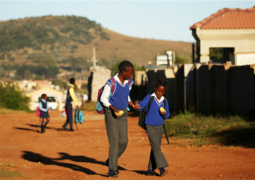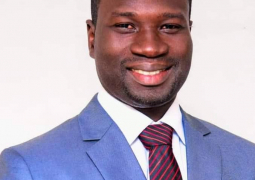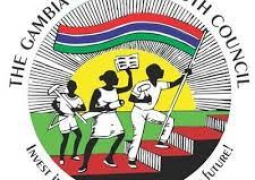
In The Gambia today, more than half of the population are made up of young people below the age of 24 and a further 42 per cent of the young ones below the age of 15.
Consequently, given their constitution of majority of the population, when communities are engulfed in land-related disputes, the young population is prone to be used to steer conflict and protect the interests of their communities.
Alagie Nyabally is a native of Sambang, a village in the Central River Region of The Gambia, which has for decades been in conflict with its neighbouring village.
Nyabally says the two villages, Sambang-Fula and Sambang-Mandinka, are influenced by land-related disputes resulting from the reduction of forest cover, soil fertility and grazing.
They have resulted in the struggle to acquire more land space by community members in order to cultivate crops and rare animals to meet their needs.
As a result, through community dialogues supported by UNFPA through the UN Peacebuilding project on climate change, young people from the two villages were brought together to enhance social cohesion, identify conflict mitigation approaches and ensure lasting peace for all in their communities.
“As young people we have witnessed crises involving our elders. We have in some instances been used as agents of conflict to defend our communities,” he narrated, saying: “From now on, we have pledged to reconcile and will never let anyone drag us back.
“With the knowledge on agroforestry and peacebuilding, I am sure we will combat the many challenges caused by climate change in our communities, thus ensuring a conducive environment for young people like myself to contribute meaningfully to national development.”
Community dialogues are a critical part of UNFPA’s interventions under the UN Peacebuilding Climate Change project to foster peace and resilience and encourage shared learning among communities, to arrive at sustainable solutions that contribute towards addressing the impact of climate change.
The achievement of national development, effective humanitarian action, and peace and security demands the inclusion of young people in developmental processes.
In The Gambia today, more than half of the population is comprised of young people below the age of 24. Thus, no meaningful development can take place without the relevant authorities listening to their concerns and recognising their contributions.
Meanwhile, as part of consultations to inform the development of the next UNFPA-Government of The Gambia Country Programme, UNFPA in partnership with the Ministry of Youth and Sport organised a meeting between the Minister, UNFPA Country Representative and young people.
Focused on the theme “Steering Conversations to Advance the National Youth Development Agenda”, the meeting brought together young people from various youth-led Civil Society Organisations, community youth groups and members of the National Youth Council.
Addressing the young people present, UNFPA Country Representative Ndeye Rose reiterated the need to prioritise issues of young people and ensuring their involvement in devising solutions to the challenges they are faced with.
She said the new UNFPA Strategic Plan emphasises the need to work more closely with young people and youth networks to deliver the transformative change that will usher in the realisation of the three zeros.
“Guided by our new Strategic Plan, we will work more with the youth to create innovative ideas for a better future," she said.
Putting young people first is at the core of UNFPA's mandate.
In The Gambia, the agency is committed to supporting efforts to guarantee the health and empowerment of young people as well as to working with various partners both at Government and CSO levels to attain this.
Source: Youth News





